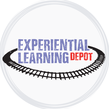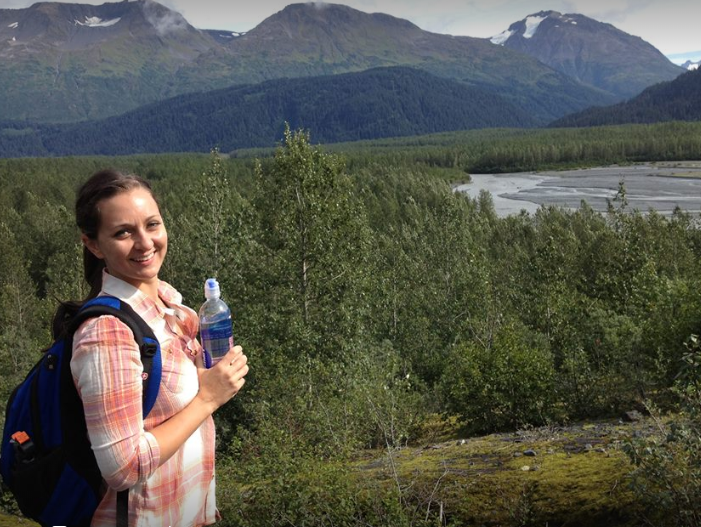|
Experiential learning resources for the innovative educator
My very first teaching job (my one-and-only) was at an experiential school, where we used project-based learning as the dominant "instructional" approach. I had zero training in project-based learning when I started. Because my project-based learning experience was limited, I didn't have a choice but to launch PBL on the first day of my teaching career, whether I was experienced or not - whether I was ready or not. Not surprisingly, it all worked out. Here I am, 13 years later, trying to encourage you take the same plunge. There are several common reasons that make educators reluctant to try project-based learning: 1) they don't know how to coordinate PBL experiences, 2) they lack the confidence to facilitate PBL, 3) they wonder how it can work for a variety of learners, 4) they worry about the time-commitment, and 5) they struggle to work in all of the required standards. Even after ten years as a project-based educator, I still get it wrong sometimes. Often, if I am being honest. Like anything in teaching (or in life, for that matter), we learn as we go, and the biggest hurdle is getting started. Getting Started is the hardest part. I have taken it upon myself to myth bust the excuses that prevent educators from getting into project-based learning. Check out the commonly sited hesitancies below, and how to get around those concerns Common Worries About Starting Project-Based Learning1. "I don't know how to do project-based learning.": There are specific components of PBL that are important to understand before undertaking the process with your students. Project-based learning is very different than a project. The short explanation is that PBL incorporates the community, emphasizes real-world topics or issues, and includes authentic learning experiences from how students demonstrate learning to who they share their new skills and knowledge with. What can you do right now to learn more about PBL?
2. "I don't feel confident starting project-based learning." I understand this feeling. It is hard to be confident about something that is new to you. On the upside, the worst that could happen is that something doesn't go the way you thought it would. If this is the worst thing that could happen, you are right on track. Trial and error is a good thing! To get better at something you have to try it and learn from it. What can you do right now to gain confidence?
3) "How do I differentiate project-based learning?" Project-based learning, when student-directed, is personalized by nature. It works for AP and IB students, homeschool learners, kids that are schooling on the road, distance learners, ELL students, and more. Students design their own projects based on their interests, needs, backgrounds, strengths, challenges, and more. For example, if you are focusing on ecosystems, each student could choose one type of ecosystem as their project topic, choose how they will gather information, demonstrate learning, who they will share their new skills and knowledge with, and so on. Choice in process and outcome is what differentiates the experience. What can you do right now to make PBL work for YOUR student population?
4) "Doesn't project-based learning take a lot of time? I don't think I could fit it in." This a common perception from educators about many experiential learning activities, including PBL, that they take too much time away from checking off the mandatory standards (look at #5 for more on standards). Yes, project-based learning experiences can take weeks. That is because they require students to dig deep, which is a good thing! You could lecture, give students a worksheet, or even assign them a project that is not an authentic PBL experience, but students would likely forget the information quickly, and that is if they ever absorbed (or even heard) that information to begin with. It is necessary and IMPORTANT that PBL takes time. The question still remains, then, how can you fit it into your day?
5) "How can I cover all of the required standards and do PBL at the same time?" I wish that this didn't have to be a concern for teachers, but it is the reality - in the U.S., anyway. So how do you incorporate standards into a project-based learning experience AND cover the unrealistic number of standards that is expected of you? Design one project that covers an entire "unit" of standards. For example, my environmental science students do a PBL experience on endangered species every year. Their objective is to put together a comprehensive species protection plan for their chosen species. To do this successfully, students would have to learn about the natural history of the species, their behaviors, threats, habitat, territory, and more. Because endangered species are largely the result of human activity, this PBL experience covers a large number of - if not all of - the NGSS's "Earth and Human Activity" standards - six of them (HS-ESS3-1 through 6) as well as others about ecology, evolution, climate, and more. If possible, create a list of concept map of the standards that need to be met, and design projects using my PBL tool kit that incorporate many of the standards at once. Self-directed project-based learning is not reserved for homeschoolers and project-based learning schools. It is for everyone. Those of you that are tied to specific curriculum may have to do some convincing to higher-ups, but I assure you, it's worth it. If you cannot make project-based learning the norm in your learning environment, try to slip a few PBL experiences in here and there. You won't regret it. Good luck to you all! Let me know how I can help, any questions I can answer, and what you need to get rolling on PBL. Follow Experiential Learning Depot on TPT for new resource alerts and Pinterest & Instagram for more on experiential education.
Observe. Question. Explore. Share.
0 Comments
Your comment will be posted after it is approved.
Leave a Reply. |
Blog IntentTo provide innovative educational resources for educators, parents, and students, that go beyond lecture and worksheets. AuthorSara Segar, experiential life-science educator and advisor, curriculum writer, and mother of two. Categories
All
|





 RSS Feed
RSS Feed